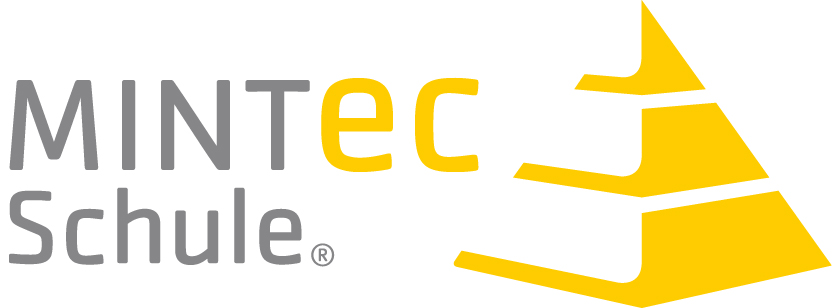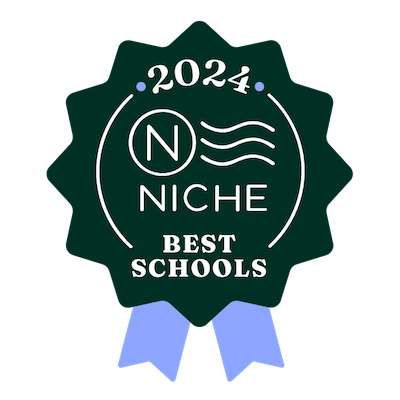Regular Schedule
TUESDAY, MARCH 3, 2026
Die GISW richtet sich nach dem regulären Stundenplan. Die Schule öffnet pünktlich.
........................................................................
GISW operates on a regular schedule. The school opens on time.
THINK STEM
– Lecture Series from 9/15/20 on MINT- EC –
Think STEM! The fun combo of math, computer, bio and chem! This cool combo certainly inspired a former student, Julian K. two years ago, as he created a “radical” school slam rap for STEM, or in German: MINT.
Dr. Müller and Mrs. Colopy, two of our STEM-teachers, gave an engaging presentation at our school’s weekly lecture series (now featured online!). On September 15th, the student’s minds expanded as we had the opportunity to learn about all of the projects and camps we can be part of.
What is the difference between MINT and STEM?
MINT is the German translation of the English acronym STEM. We know it as Science, Technology, Engineering and Mathematics, and in German, (no, stop thinking about thin mints…), it is Mathematik, Informatik, Naturwissenschaften und Technik.
|
What is the MINT-EC Program? MINT-EC is a network of more then 300 schools mostly in Germany who share their passion for STEM-education. This network is exclusive – to qualify as a MINT-EC school, a school must have an excellent „mathematical-scientific-technical“ profile. Additionally, this excellent profile must be recertified time and time again. So, hats off to our school for our profile! The goal of the MINT-EC network is to promote scientific talents by offering a variety of programs for students around the world. |
 |

So…what is in it for us?
There are many advantages for students who participate in the program, especially for those who have a passion for STEM. For example, being part of MINT-EC Program will make students more attractive candidates for coveted internships and extracurricular programs. Additionally, students can qualify and attend various MINT-EC camps in Germany to discuss scientific topics with equally passionate peers and scientists from around the world, simultaneously expanding global thought and knitting future thinkers of the world closer together. This enables students to make international contacts that will enrich not only their years in school, but also their future. In other words, it is a wonderful program resulting in well-rounded, independent and international students (after all, that is what we GISW students are all about).
But now for the students: by entering competitions, you could actually win monetary prizes in addition to international recognition (can I get a „whoop-whoop“?).
And lastly, obtaining the MINT-EC certificate (see below for further details) opens more doors when applying for and being admitted to the competitive undergraduate programs of various universities. What this means in practice for us students is that the certificate can actually increase your GPA to 0.5 in the German system. Have you been longing for a „Einser-Abi“? Imagine getting a „Null-Komma-Fünf-Abi“! Additionally, the certificate is key for the application for certain MINT-EC scholarships. Not to mention, the camps, competitions and job fairs which are great informational resources for those students who haven’t quite found the inspiration for their future. And teachers, this isn’t just for students; there is always room for more scientific thought!
Programs at our school
So, now that your scientific curiosity is burning, let me give you some ideas on how you can become part of this community. For our tiny school, we have a huge range of choices and activities to spark some creative-scientific inspiration in ALL the STEM fields:
Science – SchüEX (students experiment), Natural sciences AG, #FuFforFuture, Kids Boost Immunity, Neuroscience AG
Technology – Lecture series topics: “artificial intelligence”, “the business of high tech”, the Computer Science Biber-Competition, Robotix
Engineering – USA Science & Engineering Festival, Hot-Air-Balloon- Project, NWP, SchüEX
Mathematics – Math Olympics, Pangea Competition, Pi-Day, Kangaroo Competition
|
MINT-EC Certificate The MINT-EC certificate is awarded together with the Abitur diploma and is a distinction for all STEM achievements, intra- and extracurriculars from the 5th grade to the 12th grade. In order to receive the MINT-EC certificate one must meet three requirement areas. The first requirement refers to the student’s academic competence in the STEM subjects in grades 11 and 12. To meet this requirement, three scientific subjects must be taken in the Abitur, including mathematics. The second requirement is to write a paper, something like a college thesis, on a STEM subject. You must work intensively on a topic of your choice and dig deep – which includes going far beyond what is expected in school for that subject. The result will be a 10- 15-page scientific paper (for more info, see below interview with Manolo B.). In the third requirement area, all STEM activities are collected. These activities span over a wide range of natural science lessons, group projects, competitions, etc. of a school career. Each activity is awarded a certain number of points by the teacher of that respective subject. Depending on the number of points awarded, different certificate levels of success can be achieved: cum laude, magna cum laude and summa cum laude. |
 |
Interviews with STEM students of the GISW
To gain some further insider knowledge, we held interviews with two STEM students: Hannah D. shared some of her experiences participating in a MINT-400 camp, and Manolo B. explained the preparation of the scientific thesis paper and described some advantages of the MINT certificate from his own perspective.
Interview with Hannah D. on her experience with MINT-400
What did you do at the MINT-400 camp? What kind of activities were there, and what was the incentive to participate?
“At MINT-400 I had the opportunity to observe how scientific work is conducted in a laboratory. There were also various lectures on numerous biological subjects. Lastly, I discovered I had the opportunity to learn about many German universities which focus in the STEM field. Personally, my deep interest in biology was what persuaded me to participate.”
Was it worth the time and money?
“Yes, definitely. Not only did I have the opportunity to explore Berlin, but I also had the chance to see professional lab work done.”
Was it your first time to fly to Germany? If so, were there any difficulties (and what were they)?
“While it was the first time for me to fly from Washington D.C. to Germany by myself, I didn’t experience any problems.”
Was missing class during the camp a problem upon your return?
“It was a bit stressful as I arrived back home the week before the ZKAs. But other than that, I didn’t have too much to catch up on.”
Did you gain any significant advantages from attending MINT-400 in STEM-subjects?
“Yes. I learned a lot during the lectures which ultimately helped me in 11th grade biology class.”
Interview with Manolo B. about his thesis paper
What was the inspiration for your topic, and how did that inspiration turn into your thesis?
“First, I brain-stormed all kinds of things that came to my mind about physics that I found interesting. Then I filtered out what might be best suited for a scientific paper. Finally, it was also important to formulate a precise question that I could work with in a targeted manner.”
How did the process, namely, the planning, drafting and writing of the work during stressful school times go? To what extent were you supported by your mentors and teachers?
“Before starting the work, I was supported by my subject teacher in choosing a topic and formulating the question. I had several carefully prepared conversations about this during school time. When writing the work, I was mainly left on my own. * I did all the work during vacation time and during the distance distance learning phase, so it was possible for me to work in a very flexible manner. At first, I spent many hours researching my topic, finding high quality sources and jotting down lots of notes. At the same time, I started to prepare and conduct various experiments lasting several days. After the research I created a rough concept and then wrote my thesis. Finally, it was also important to revise the entire work and to insert useful materials, such as illustrations. “
*In the meantime, there are written student guidelines developed by the teacher STEM-team of the GISW [author’s note]
Did writing the work help prepare you in any way for your Abitur exams (written, oral, or P5)?
“I did my P5, just like my thesis, in physics, and there was some overlap between the topics of the two projects. By writing the thesis paper, I acquired a comprehensive knowledge of my topic, which made it much easier for me to prepare for my P5.”
Did deep research on the chosen topic help you decide on a career or a course of study?
“I already knew that I wanted to study something in the field of natural sciences. The thesis paper didn’t change that.”
Interview with Manolo B. on the MINT certificate
How much work did you have to invest in order to receive the MINT certificate?
“Over the years, I have repeatedly participated in scientific competitions and often performed well. I have also taken part in other STEM activities that I found fun. Really, I just did the things I would have done anyway, as that was my passion. I collected enough MINT points without investing much additional time. So, the only thing I had to invest a lot of extra work in was developing the necessary scientific skills.”
Did your activities in various STEM areas influence your choice of career/study program?
“There isn’t a singular activity that influenced my choice of further study. Rather, I think it was the many cumulative activities I took part in that awoke my scientific curiosity, and ultimately that influenced my choice of a study program.”
Did the MINT certificate help you with the application process at universities? Did the certificate coupled with your STEM activities have an effect on your admission to the desired program?
“I have not applied to any university yet. However, I know that it is very highly regarded overall if you have additional activities or awards to show for your passion. The MINT certificate in particular can therefore be very advantageous when applying for science degree programs, as it proves that you have delved deep into the fascinating STEM world for several years.”
by Ann-July E. (12a) und Victoria v.C. (12b)









